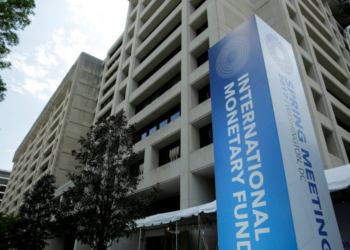A new report by Fitch has downgraded Nigeria’s Long-Term Foreign-Currency Issuer Default Rating (IDR) to a ‘B’ status.
The Fitch report, which was published on the ratings agency’s website earlier this morning, noted that the outlook is negative. Note that Nigeria’s IDR was, until this morning, rated B+.
Reason for the rating: According to Fitch, the rating is reflective of the current pressure on Nigeria’s external reserves due to the Coronavirus pandemic, as well as the recent plunge in global oil prices.
Nigeria’s foreign reserves declined by 9.4% year-on-year, thereby representing a cumulative fall of 22.5% since a peak was recorded in mid-July 2019.
What this means: The Fitch report noted that excessive external pressures will increase the risks of disruption to Nigeria’s macroeconomic adjustment. The country’s uncertain monetary and exchange rate policy and the absence of reliable fiscal buffers, are also factors that are increasing the said risks.
The situation also has the potential to increase the government’s debt and interest payment-to- revenue ratios which, unfortunately, are already high. Ultimately, these could result in an economic recession, the report said.
READ MORE: CBN temporarily suspends settlement of failed Visa and Verve card transactions
Meanwhile, the Fitch report said that the recent remedial policy of the Central Bank of Nigeria is not enough to take care of the country’s depleting external reserves. Some parts if the report said:
“The plunge in international oil prices, which we assume will average of USD35/barrel in 2020 after USD64.1/barrel in 2019, highlights Nigeria’s high dependence on the oil sector, with hydrocarbon revenues representing 57% of current-account receipts and nearly half of fiscal revenue over the last three years.
“The shock exacerbates the overvaluation of the naira and remedial policy actions taken by the Central Bank of Nigeria (CBN) will not suffice to address deteriorating external imbalances, in our view.
“The CBN allowed the exchange rate on the Investor and Exporter Window, on which the bulk of foreign-currency (FC) transactions is held, to depreciate by 6.7% since mid-January and devalued the official exchange rate by 15% in March.”
The Fitch report went further to argue that the scope of CBN’s adjustment policy is too small, compared to the nature of the shock that has been witnessed.
READ ALSO: Nigerian banks face gloomy future over low oil prices, coronavirus
Note that Nigeria’s exchange rate has appreciated by more than 30% since 2016. This has been driven mainly by rising inflation which averaged 13.3% between 2017 and 2019 due to rigid nominal exchange rates, Fitch noted.
Fitch’s negative projections: in view of the foregoing, Fitch projected that the Federal Government of Nigeria will witness a further weakening of its fiscal revenue due to the oil price slump and the near-shutdown of economic activities in the country.
More so, general government deficit was projected to widen by 5.8% of GDP in 2020, up from 3.8% in 2019.
You may read the full report by clicking here read the full report by clicking here.





















